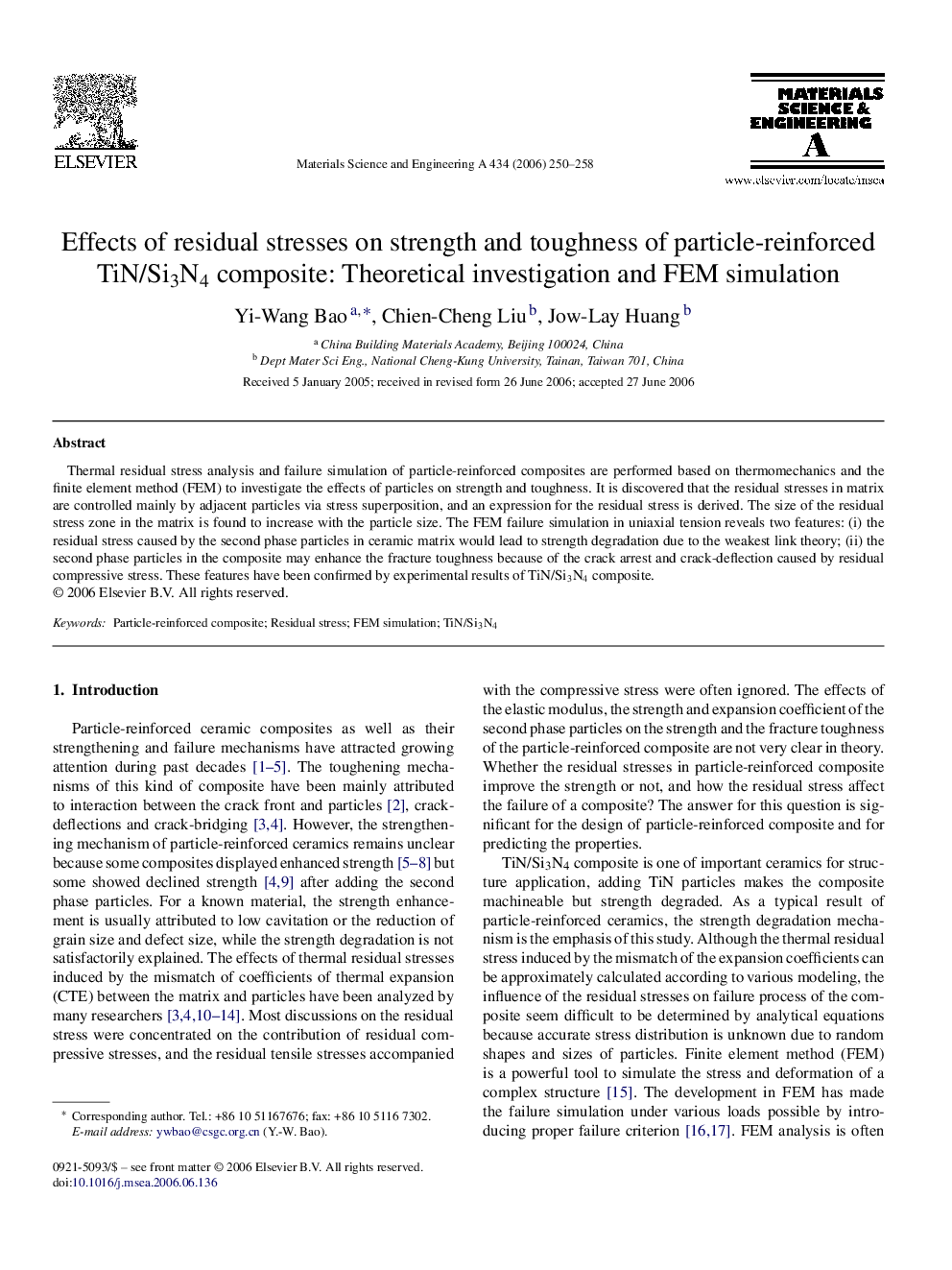| Article ID | Journal | Published Year | Pages | File Type |
|---|---|---|---|---|
| 1584918 | Materials Science and Engineering: A | 2006 | 9 Pages |
Abstract
Thermal residual stress analysis and failure simulation of particle-reinforced composites are performed based on thermomechanics and the finite element method (FEM) to investigate the effects of particles on strength and toughness. It is discovered that the residual stresses in matrix are controlled mainly by adjacent particles via stress superposition, and an expression for the residual stress is derived. The size of the residual stress zone in the matrix is found to increase with the particle size. The FEM failure simulation in uniaxial tension reveals two features: (i) the residual stress caused by the second phase particles in ceramic matrix would lead to strength degradation due to the weakest link theory; (ii) the second phase particles in the composite may enhance the fracture toughness because of the crack arrest and crack-deflection caused by residual compressive stress. These features have been confirmed by experimental results of TiN/Si3N4 composite.
Related Topics
Physical Sciences and Engineering
Materials Science
Materials Science (General)
Authors
Yi-Wang Bao, Chien-Cheng Liu, Jow-Lay Huang,
